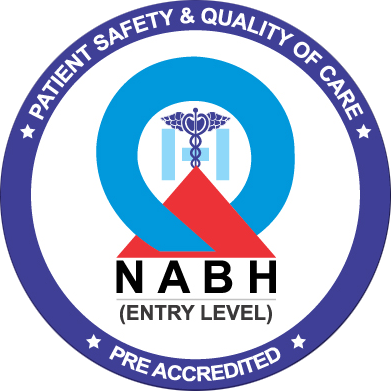
During the monsoon, relief from the heat with a rejuvenation of the landscape changes and raises much-needed relief. However, eye health faces certain challenges during rainy weather. In addition to increased humidity, dust, and diseases carried through water, the situation can take a turn towards danger for your eyes. It is thus necessary to initiate and take proactive measures that will keep your eyes safe during these months. This guide keeps people abreast of the strategies that can secure his vision and eye health in monsoon.
1. Understanding the Risks to Eye Health During the Monsoon
Most of the problems are precipitated by exposure to the various environmental hazards around the eyes during the monsoon season. Essentially, this provides the first step in protection.
- The chance of developing secondary infections is more, since damp and moist environments are very suitable for the growth of bacteria and fungi. Conjunctivitis is a highly prevalent complaint this time of the year. This condition is more prone to spreading.
- Allergic Reactions: Rainy weather tends to cause allergy because of fungus, pollen, and dust-all ending up causing redness, itching, and tearing.
- Waterborne diseases: The water contaminated during the rainy season causes infections around and to the eye.
- Injurious by Debris: Wind and rain will often introduce dust and debris into the eyes, thereby leading to irritation and even possible injury.
2. Maintaining Hygiene and Eye Care
Practising good hygiene is crucial for preventing infections and maintaining eye health during the monsoon.
- Wash Your Hands Regularly: Frequent hand washing is essential, especially before touching your face or eyes. This helps reduce the transfer of bacteria and allergens.
- Use Clean Towels: Always use clean towels or tissues to wipe the face as well as eyes. Also, avoid using towels to limit infections spreading.
- Try not to rub your eyes. Rubbing your eyes will spread dirt and irritants, increasing your chances of getting infected or inflamed. If your eyes feel itchy, flush out the irritants using saline solution or artificial tears.
- Hydrate: Drinking lots of water helps maintain the moistness of the eyes so that the likelihood of dryness or irritation is diminished.
3. Protective Eyewear for Monsoon Safety
Appropriate eyewear can offer considerable protection against hazards in the environment.
- Use Glasses or Goggles: Wear glasses or protective goggles when venturing outside in rain. They may protect your eyes from water, debris, and sometimes destructive UV rays.
- Sunglasses: UV rays can still cause damage to your eyes even during the monsoon. Choose sunglasses with UV protection to protect against harmful rays and reduce glare from wet surfaces.
- Anti-Fog Coating: If you wear glasses, you could apply anti-fog spray or wipes to keep your view clear.
4. Nutritional Support for Eye Health
A balanced diet, therefore, remains an important overall eye health maintenance system. Eat food with nutrients to add strength to your vision.
- Omega-3 Fatty Acids: Salmon, walnuts, and flaxseeds are all rich in omega-3s, which contribute to healthy eyes and reduce evaporation.
- Vitamins A, C, and E: Include colourful fruit and vegetable servings of carrots, spinach, citrus fruits, and nuts to ensure adequate vitamins for protection against infections and oxidative stress.
- Hydration through Healthy Drinks Hydration along with antioxidants from healthy drinks like herbal teas and freshly squeezed juices helps in looking after the overall well-being of eyes.
5. Avoiding Eye Irritants and Allergens
During a monsoon, some environmental irritants increase eye problems. It is important to know and avoid them.
- Limit Exposure to Dust and Mould: Keep windows closed during heavy rains to prevent dust and mould spores from entering your home. This will also maintain air quality with the help of air purifiers.
- Avoid Smoke and Strong Odours: Avoid smoke, strong perfumes etc., as they may cause allergic reactions or could be pretty irritating for the eyes.
- Be Cautious of Water Quality:Avoid exposing your eyes to unhygienic water; do not look into a puddle because it may harbour pathogenic bacteria or worms.
6. Regular Eye Check-ups and Monitoring
Routine eye exams are important to maintain eyesight especially during the monsoon.
- Schedule Regular Eye Exams: Regular check-ups can help detect and address potential issues early on. Eye care professionals can offer personalised advice and treatment options.
- Be Aware of Changes in Vision: Be constantly aware of changes within your vision or discomfort in your eyes. If you observe that this persists, then take professional help on time.
7. Seeking Professional Help at Macretina Hospital
If any eye problem occurs during monsoons, it is advisable to consult a doctor. Macretina Hospital diagnoses and provides specific treatment for any kind of ailment and ensures the best vision health.
- Complete Eye Care: Our doctors perform comprehensive eye exams and personalise treatment plans based on specific concerns.
- Infection Management:They will help you identify whether you have an eye infection or an allergy and prescribe the right treatment to keep away the symptoms.
- Correction of Vision: The eye hospital provides various types of correction lenses such as glasses and contact lenses according to the necessities of the patient.
Conclusion
Protecting the eyes in the rain and good care to retain good vision and health for the eyes will be taken good care of. Known risk factors, following good hygiene practice, protective eyewear, and healthy dieting will minimise complications in eyes. Regular check-ups and consultation with best eye care specialists of Macretina Hospital will ensure that everything goes well in the rainy season for the eyes.
All these precautions will save your vision and contribute to an overall quality of life during the rains. If you do have some questions or issues regarding your eye health, don’t hesitate to consult a healthcare professional.

